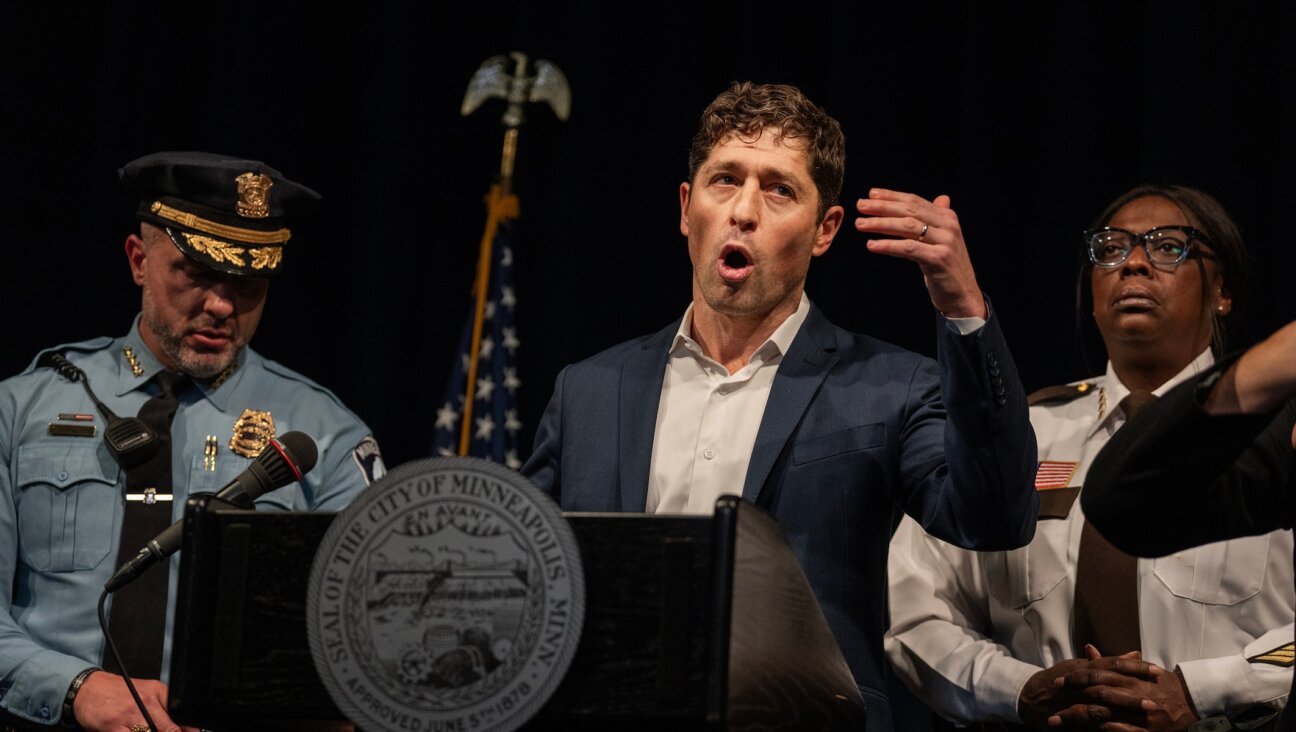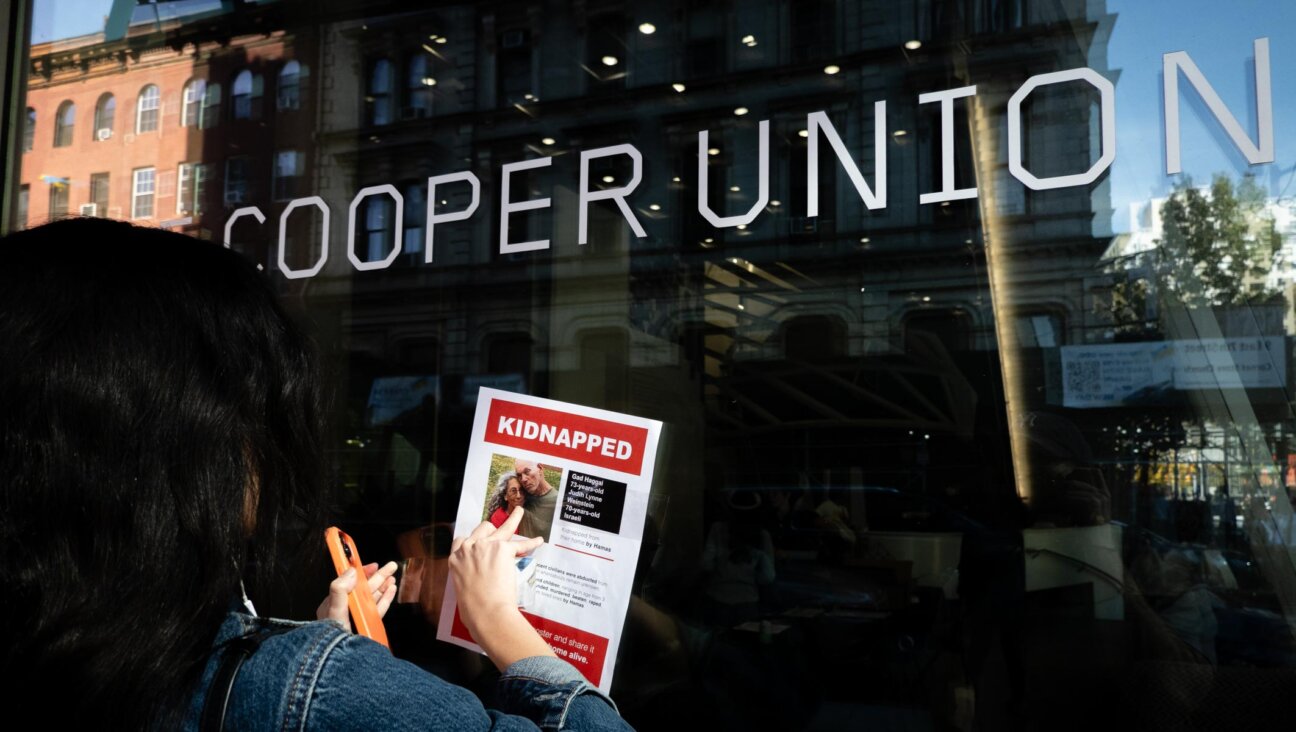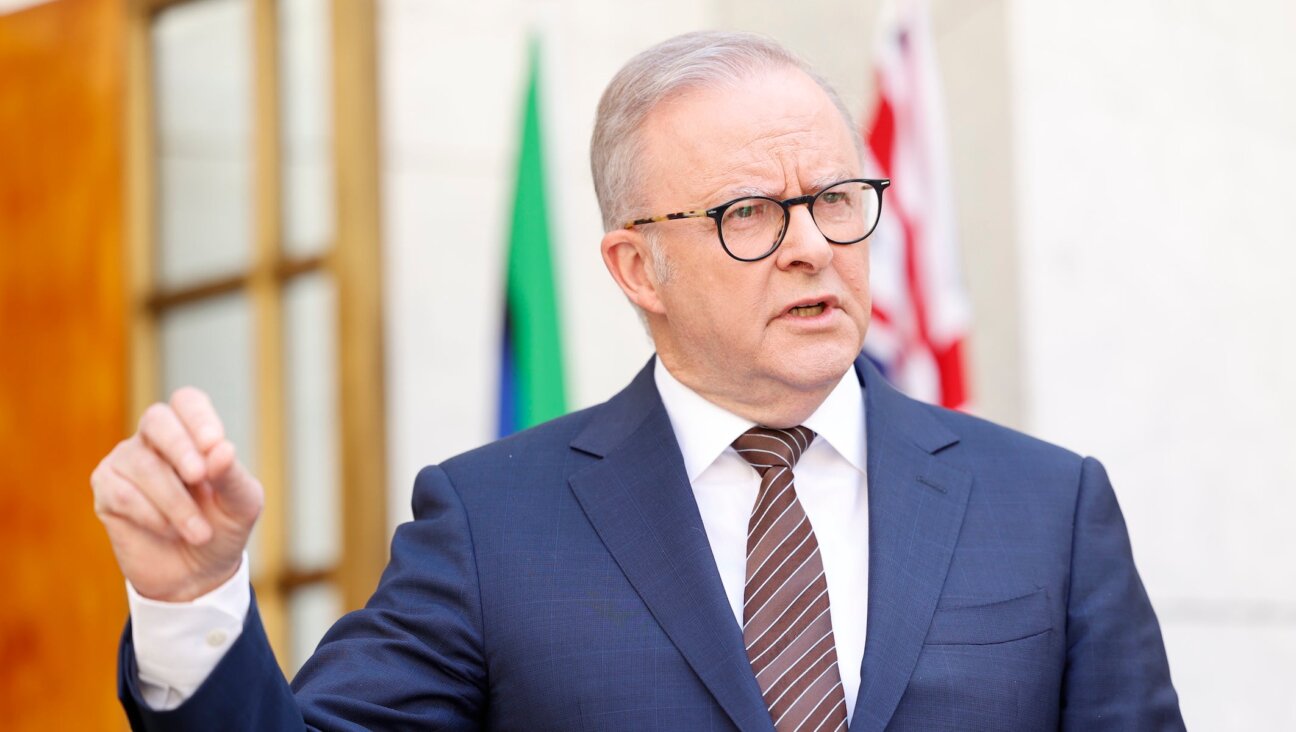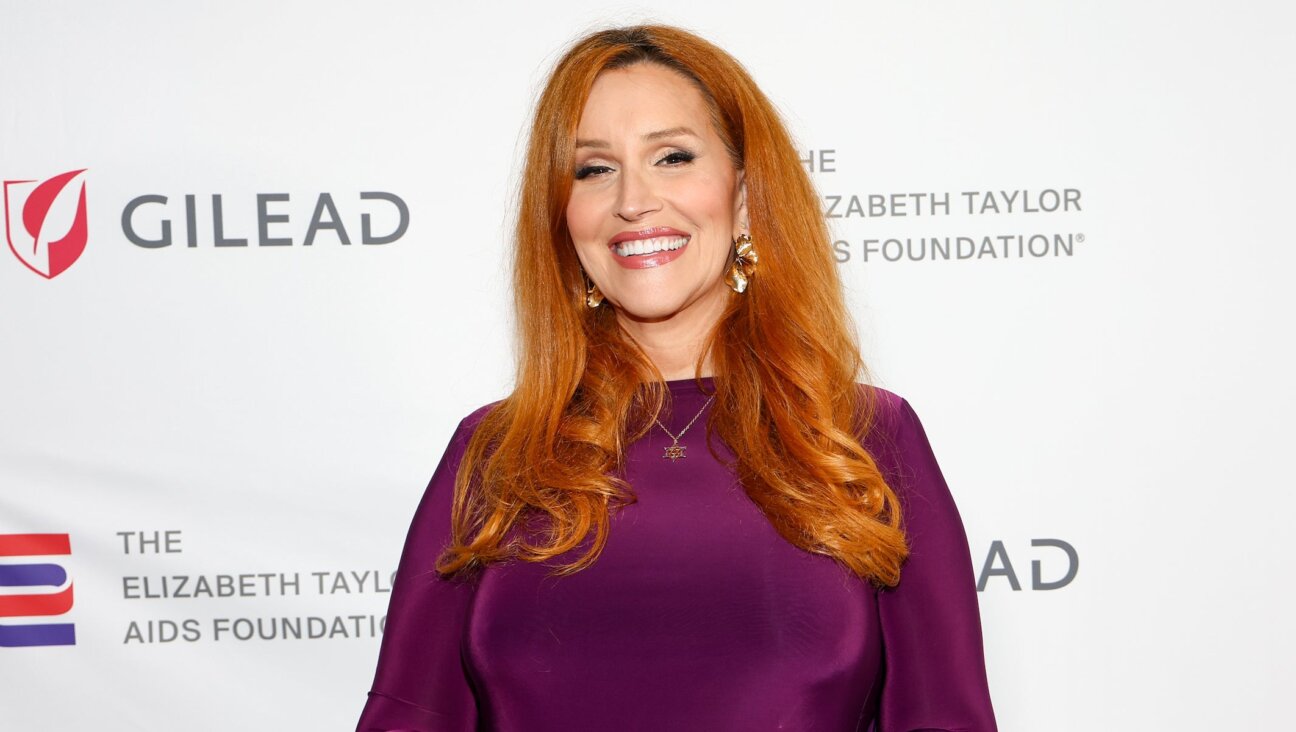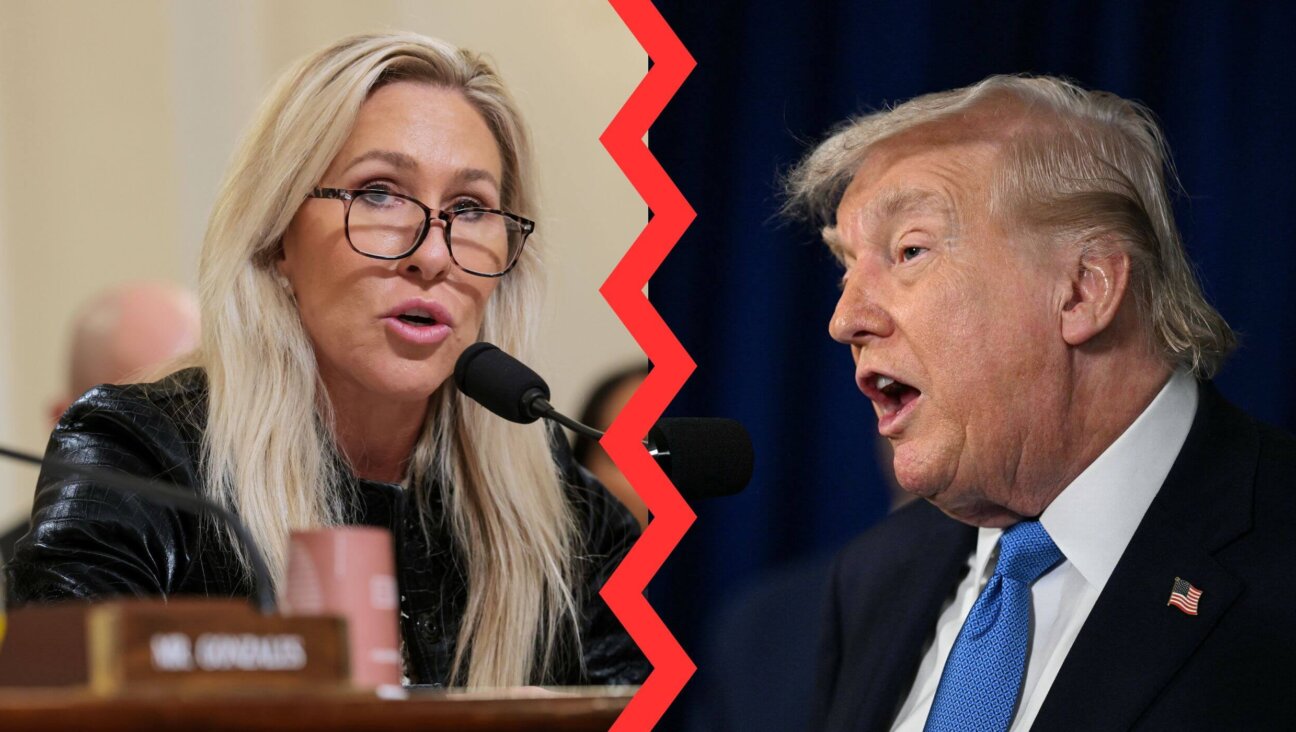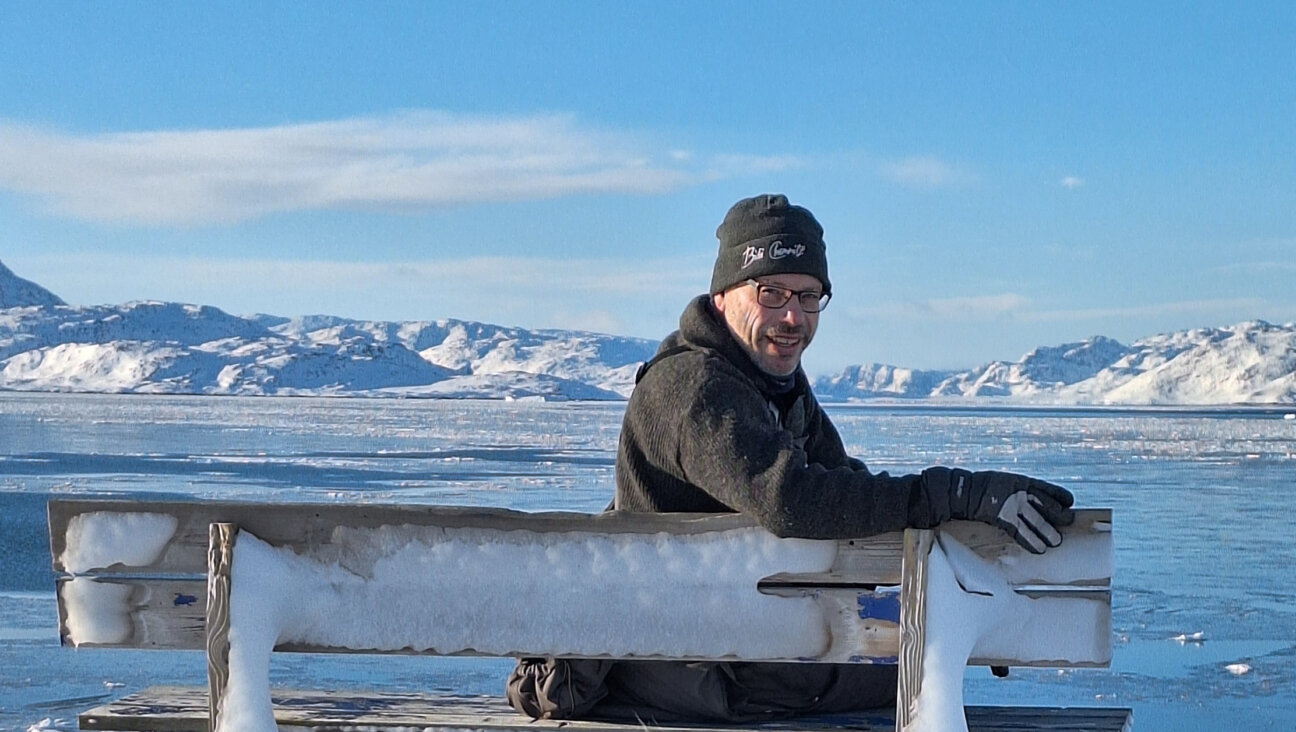Polish Minister Says Unclear If Neighbors Killed Jews in Notorious Pogrom

Graphic by Angelie Zaslavsky
Amid a public debate about the complicity of Poles in the murder of Jews in the Holocaust, Poland’s education minister implied that historical accounts of such atrocities are inconclusive.
In an interview Wednesday with the TVN24 network, Anna Zalewska spoke of “biased opinions” in describing Jedwabne, where on July 10, 1941, at least a few dozen Poles killed a minimum of 340 of their Jewish neighbors, according to the Polish government’s own Institute of National Remembrance. Many were burned alive in a barn.
“It is a historical record in which there have been many misunderstandings, many very biased opinions,” Zalewka, of President Andrzej Duda’s right-wing Law and Justice Party, when asked whether Poles carried out the murders. “The tragic situation that took place in Jedwabne is controversial. Many historians, eminent professors, show completely different scenarios.”
Several Polish presidents, including Duda, have acknowledged that Polish gentiles killed Polish Jews at Jedwabne, though the Institute of National Remembrance is pushing for an exhumation of the mass grave at Jedwabne to settle some questions, including some raised by the discovery of bullet shells at the scene.
Jedwabne is one of several sites where Polish non-Jews killed a total of 1,500 to 2,500 of their Jewish neighbors during the Holocaust or directly after it, according to Poland’s chief rabbi, Michael Schudrich. The Simon Wiesenthal Center’s Israel director, Efraim Zuroff, said approximately 20 sites where such masscres occured have been documented. While complicity in the genocide occurred in Poland on a lower scale than in some of its neighboring countries, many Poles find this complicity difficult to accept because of a “deep-rooted and largely justified perception by Poles as being primarily victims during World War II,” Zuroff told JTA.
Before Duda was elected president last year, he attacked his predecessor for apologizing in 2011 for Jedwabne and denied that such events actually occurred.
“We did not, as we are falsely accused by others, participate in the Holocaust,” Duda said in a 2015 televised debate. “Lord knows that Poles didn’t take part in the Holocaust.”
Earlier this month, however, Duda did acknowledge that some Poles killed Jews during the Holocaust. Speaking at Kielce, a town where dozens of Holocaust survivors were killed in 1946, Duda vowed to reject anti-Semitism, saying: “Also ordinary people were involved in the attack.”
But Duda also said he would like to see historians determine why the attack happened, in what critics said was a reference to a nationalist narrative that views the massacres as payback for atrocities allegedly perpetrated by communist Jews against Poles when parts of Poland were under the Red Army’s control, before they were occupied by Germany in 1941.
“I leave it down to historians and sociologists to determine how it happened and why it happened, why people reacted in this particular way,” Duda said.
